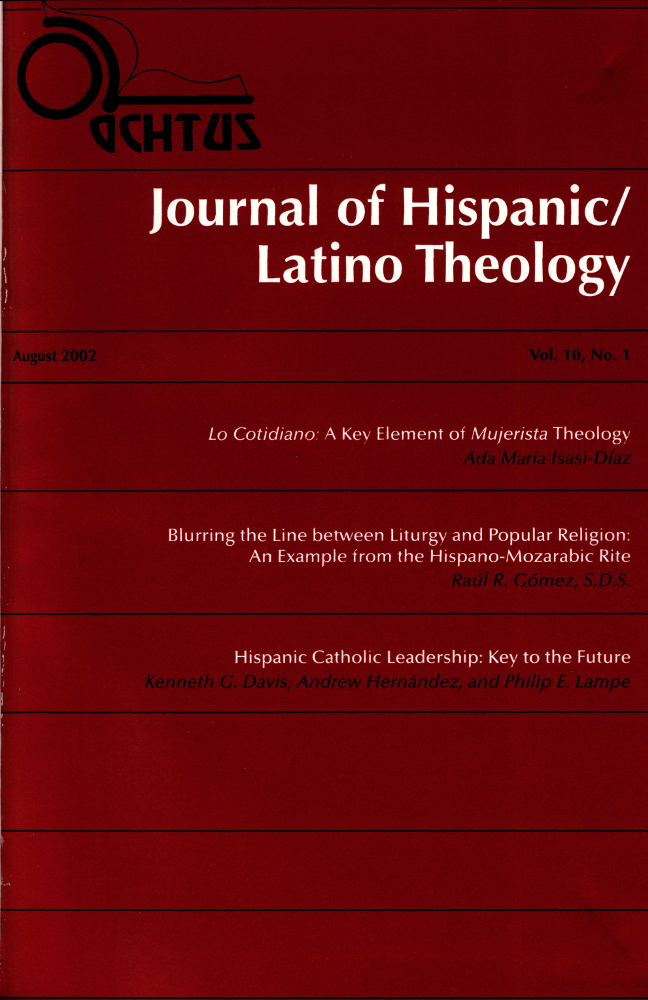Volume 10, Number 1 (2002)
Lo Cotidiano, Then and Now

Advancing her project in mujerista theology, Ada María Isasi-Díaz underscores the importance of the struggle for survival that working and poor women face in their everyday life — en lo cotidiano — as a crucial source for Hispanic Latino/a theology. Long neglected as a horizon for academic theology, women's everyday experience holds the key to authentic and lasting liberation. Even where Latina/o theologies target large-scale macro-structural changes, those “must be rooted in lo cotidiano," she writes. "Unless the changes we struggle to bring about impact the organization and function of lo cotidiano, structural change will not happen, and, if it happens, it will not last."

We close with an important new study from Kenneth G. Davis, Andrew Hernandez, and Philip E. Lampe. They assess data from their 1999 survey of Hispanic churchgoers — experiences, needs, and deficits with respect to Hispanic leadership in their churches. Commissioned by the National Catholic Council on Hispanic Ministry (NCCHM), the study concludes that "because Hispanics are an increasingly important part of the Church in the United States (and society), Hispanic Catholic leadership development (especially among women, youth and young adults) requires an immediate and significant investment. Once formed, such leaders are very likely to contribute time, talent, and treasure to the Church."
Articles
Lo Cotidiano: A Key Element of Mujerista Theology
Ada María Isasi-Díaz
Blurring the Line between Liturgy and Popular Religion: An Example from the Hispano-Mozarabic Rite
Raúl R. Gómez S.D.S.
Hispanic Catholic Leadership: Key to the Future
Kenneth G. Davis, Andrew Hernández, and Philip E. Lampe
Book Reviews
Acts: The Gospel of the Spirit
Justo L. González
Fray Angélico Chávez: Poet, Priest, and Artist
Ellen McCracken ed.
La Navidad Hispana at Home and at Church
Miguel Arias, Mark R. Francis, and Arturo J. Rodríguez-Pérez
Art, Liturgy, and Legend in Renaissance Toledo: The Mendoza and the Iglesia Primada
Lynette M.F. Bosch
Oscar Romero: Reflections on His Life and Writings
Marie Dennis, Rennie Golden, and Scott Wright
Pentecost in Asia: A New Way of Being Church
Thomas C. Fox
Preaching and Culture in Latino Congregations
Kenneth G. Davis and Jorge L. Presmanes

Editors (vol. 10 no. 1)
- Editor
- Jean-Pierre Ruiz
- St. John's University, New York
- Associate Editor
- Alejandro García-Rivera
- Jesuit School of Theology at Berkeley

